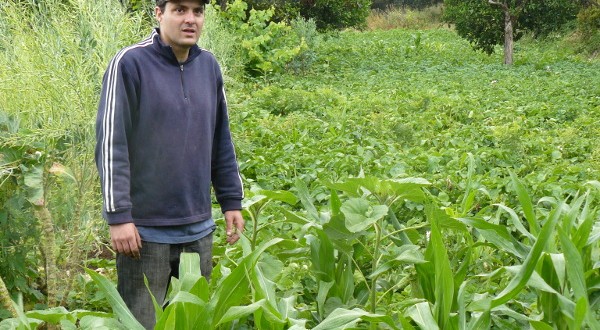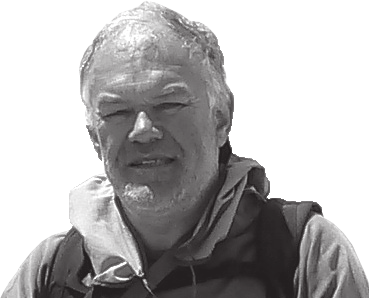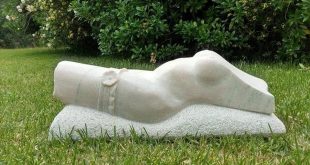Over half of all foodstuffs produced end up going to waste. The agricultural industry devours great quantities of energy, water, fertilisers and pesticides. Tropical forests get felled to make way whether for pasture lands or soya and palm oil industrial farming. Over a third of greenhouse gases may be traced to the agricultural sector and the global transport of foodstuffs.
We know that the excessive consumption of meat and dairy products causes disease. Why do we continue buying from supermarkets the outputs of the industrial meat sector with its intensive animal husbandry practices, fattening them on genetically manipulated soya? Are we really going to handover responsibility for our diet to the agro-industrial sector that, within a now global framework of competition, understands only economic growth? After all, 2014 is the European Year against Food Waste.
How might we attain a balanced diet able to contribute to our health and the wellbeing of animals as well as the planet as a whole? This edition of ECO123 focuses on agriculture, foodstuff types and the food chain and searches out healthy and regional solutions. We would seem to have lost most contact with both planet earth and with our own diets and thus the question becomes just how might we recover it?
ECO123 spoke with the farmer Filipe Baiona, aged 28, on his ‘Quinta das Hortênsias’ farm located in Caldas de Monchique (Algarve).
ECO123: Is the farm your supermarket?
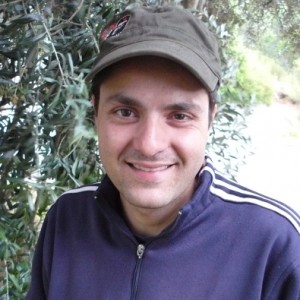 Filipe Baiona: Exactly. Here, everything is good, has quality and helps wellbeing. It all comes at a price as this price reflects a great deal of work. However, we have it all here and it’s already something quite substantial, at least if we measure the area cultivating various types of things. To be brief, I’ll give you a list of everything we have sown here: everything from melon, watermelon, onion, lettuce, tomatoes, peppers, cucumbers, three or four different types of beans, yams, two types of potato, a lot of different types of cabbage, broad beans and as well as carrots and peas. We also have lemon, orange and various fruits. This all requires a lot of hard work and dedication. Saturdays and Sundays as well, getting up early but this also provides good health and builds us up.
Filipe Baiona: Exactly. Here, everything is good, has quality and helps wellbeing. It all comes at a price as this price reflects a great deal of work. However, we have it all here and it’s already something quite substantial, at least if we measure the area cultivating various types of things. To be brief, I’ll give you a list of everything we have sown here: everything from melon, watermelon, onion, lettuce, tomatoes, peppers, cucumbers, three or four different types of beans, yams, two types of potato, a lot of different types of cabbage, broad beans and as well as carrots and peas. We also have lemon, orange and various fruits. This all requires a lot of hard work and dedication. Saturdays and Sundays as well, getting up early but this also provides good health and builds us up.
Do you consider yourself a farmer?
We all ended up being farmers – myself, my father and a man who comes in to help out. However, the foundation for getting your products from the earth comes from its preparation – and this involves machinery, expenditure, fuel and all the rest. And this is all our own responsibility. In the end, this practicing agriculture for your own consumption follows the example of many people here in Monchique who take advantage of their lands. Things are done with care and dedication and you try and produce a little bit of everything we consume.
Nobody gets hungry here as in the cities?
It’s totally different because here we are a family. Five people or more – indeed, there are various families eating off this. There is a retired man who lives with his wife – and pensions are really low these days in our country as we all know. Every day, he gets up early and comes here because he’s motivated to put in some work and to take a little something back home with him. So, he helps out and this generates a cycle. He takes some of the stuff home with him and with his strength and our own, we get this done.
You can’t learn this overnight, can you? This is life long learning?
Exactly…
Should there be anybody in a city wishing to move to the country and work in agriculture, even if they don’t know anything – how should they best get started?
I would imagine this idea is feasible and I deal with city folk every day – but the bases, the ideas they have are others. They were educated in a different way of life to ours. I think that agriculture comes from the past. If we go back in time, my family was living in the country, living off whatever nature gave them or they could cultivate and that has stuck. Nowadays, my parents live in the country and I do like living here. Every day, I do loads of kilometres to get back to this wellbeing, this quality of life, what I learned and where I was raised. And this brings me the willpower, the strength to be able to help, to cultivate and learn. And, in the end, to get the crop, the return. I can go up to my colleagues from Portimão and give them a bag of potatoes and say that it was the fruit of my labours. I am both self-sufficient and able to help others…
In the cities, there are families with major financial problems. Problems such as mortgages to pay. Elderly persons on low pensions and who don’t have any allotments or gardens. Children going to school hungry. In Monchique, there is the knowhow to engage in agriculture…
Sure. We may compare certain aspects. One case I have here: a friend who likes farming and – there you have it – we made this partnership. Now, he has his pension and also has children and probably does have to spend his money helping them out. I am absolutely certain that this man basically lives off all of this, these fields that we have here. He comes and helps out and takes away his return because our agriculture always bears an abundance. In that way, the land gets worked. If he were a bit lazy, he might only work a smaller patch and leave the rest to grow wild.
How many hectares do you have?
There’s about three hectares.
Does one hectare provide enough for one family?
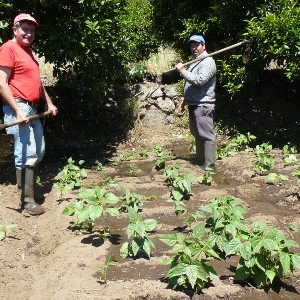 One hectare? That depends. These lands are ancient and when they are well prepared, they may be made use of in different ways. We have five types of different fruit trees: various types of tangerine, an orange that is called the ‘Bay orange’, it’s really a historical orange…
One hectare? That depends. These lands are ancient and when they are well prepared, they may be made use of in different ways. We have five types of different fruit trees: various types of tangerine, an orange that is called the ‘Bay orange’, it’s really a historical orange…
You also have medley fruit…
… and figs. We also have some vines to get some grapes. Therefore, these are foundations that were laid down a long time ago and that time and now ourselves take care of as it makes sense. For example, a tree like this might provide between 200 and 300 kilos of tangerines. In Monchique, we’ve also various qualities of pears but two of them are very famous – the ‘Malápio’ and ‘Bravo Mofo’ pears. To me, these pears have more flavour. They were the pears our forefathers would harvest. They’d tie the stalk with a string or a line of thread and they would hang them up. They’d make a type of line with 20, 30, 40 pears and all equally spaced and they would hang them from the ceiling and they would last from one year to the next and as if they had just been picked. This was just a means of conservation.
And grapes?
Grapes, yes. Here, we also grow tropical fruits such as guavas.
How many crops of potato do you get annually?
Sometimes I grow three times a year as potato ends up growing here all year round. They do very well in our zone. I’ve just been digging some up and in September it’s time to plant again for the three months to Christmas meaning you’ll have new potatoes then. And then I plant again in January to eat them now, in May. And I’ve just finished planting again to eat in the summer – throughout the four seasons we can get new potatoes.
Do you belong to any organisation?
I’m a member of an association. In fact, I sit on the board of the hunting and fishing club for our town.
How often do you eat meat per week?
Meat is part of my diet. The consumption of meat might be two, three and even four or five times per week but it may also be just once. Taking an average, I’d say three times per week. However, during the week, I have at least four days with different soups. In my house, with my family, we consume a lot of soup. And our organism is so used to soup that if there are a couple of days without soup, things do not seem to work in the same way.

In times past, people ate far less meat than nowadays. For example, in a restaurant, we get meat or fish alternatives. But very few things without them, alternative vegetarian dishes.
Our ancestors perhaps only ate a little meat but perhaps it was meat with quality.
Does anyone in your family know how to make sweets?
They sure do. My mother knows a lot about sweet making. She is an extraordinary person, without doubt a great woman, a great fighter. And she brings with her this great wisdom about the making of the good regional sweets and jams that we have in the Algarve and, in this case, Monchique council.
With figs, carobs, peanuts?
She makes use of everything. Pennyroyal to make liquors, myrtle with bubbles, plums – everything nature gives us, people make use of…
And a good medronho as well?
And a good medronho as well, praise the Lord. And that’s where I am more at ease and what gets me more interested.
Do you make any swaps? If you’ve got too many onions but no peas, for example, do you exchange locally?
That idea might even be a reality. People come to my home and, for example, give me a bag of potatoes or onions. I wouldn’t say that it’s swap for swap, but we share what we have. And after somebody might share what they have and we together create a cycle that way.
I work in Portimão and there I’m in contact with the sea and where fish is the main source of sustenance. The food is healthier but eating fish without potato or tomato is just not the same thing. Therefore, we do end up making swaps. Sometimes I share my things, such as oranges when I take in a box to give to my colleagues when in the canteen.
If we go back to the topic of hunger, I think the people of Monchique are today pretty much self-sufficient and with a spectacular quality of life. Portimão is home to the lower classes – even if they do have the sea. However, this alone does not sustain them. I see this when I go off to work and take potatoes, onions or cabbage that for some people ends up being a magnificent gift. And they do get eaten and then I frequently get asked when I’ll be bringing some more.
What do you think about the hypothesis of hypermarket supply lorries not circulating for three, four or five days per week and them being forced to close?
God willing that that does not happen but I do believe…
Do you remember the oil tanker drivers strike some five years ago?
That was a tremendous case. I took some mental photographs of the things I saw and I thought the world was coming to an end. I saw cars just pulled up on the motorway without any fuel. There were people who came up to me to ask if I had any potatoes because they wanted to make soup and they didn’t have any and things were running out at the hypermarket. Things were running out everywhere and people were running around stockpiling everything.
I think that this would be chaos. In such a case, however, I am sure that whoever lives off agriculture here in Monchique will get through the crisis whether its long or short. Because, to me, nowadays, a good home, with some good land for cultivation is worth more, where you can be both happy and self-sufficient, than some swish apartment facing the sea on Praia da Rocha.
What is the alternative to this dependence?
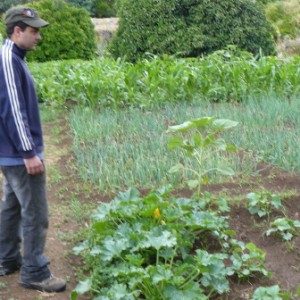 The people of Monchique have a lot of qualities, fighting their cause is one. We try, with our efforts and our labours, to get some return. Contrary to a lot of people, who even prefer to go hungry than having to work the fields for one or two hours a day, having the conditions, the lands, the opportunities – and who do not do so because they don’t want the work.
The people of Monchique have a lot of qualities, fighting their cause is one. We try, with our efforts and our labours, to get some return. Contrary to a lot of people, who even prefer to go hungry than having to work the fields for one or two hours a day, having the conditions, the lands, the opportunities – and who do not do so because they don’t want the work.
The fields got abandoned, the elderly passed away and the young got these lands and don’t use them for anything. They abandon them and let weeds and the brush take over. And that’s despite having there a means of self-sustenance and healthy eating. Today, many people don’t want to work the land and don’t want to put in the effort. If the plots are small, then it’s got to be the old fashioned way with hands and hoes. Giving you a pain in the back. As people do not want to get tired, they head off to the supermarket and buy something they don’t even know where it came from. I think there’s a lack of incentive, of willingness in all of us and especially those with the chance of having a cultivated allotment and living off food with some quality. I think these people should make more of an effort, think a little deeper about the question. They have that left them by their predecessors, why not take advantage of it? Why leave it to rot in abandonment? Why allow things to reach the point of needing to get on with a mass clearing and which really does cause a lot of work with things just otherwise deteriorating? Having arms and legs, I think that and with three or four other people, things are possible and you can recover them. With the field restored, you can get some really impressive harvests.
A farm serves as a vegetable garden and orchard and has animals. We have everything from pigs to hens, ducks, turkeys that we eat all the eggs of and we also slaughter and consume the animals themselves. Therefore, everything works in a cycle and ensuring the conjugation of the two facets means we have healthy diets.
The cycle of life.
The cycle of life, yes, exactly.
Thank you very much for talking with us.
 Eco123 Revista da Economia e Ecologia
Eco123 Revista da Economia e Ecologia

